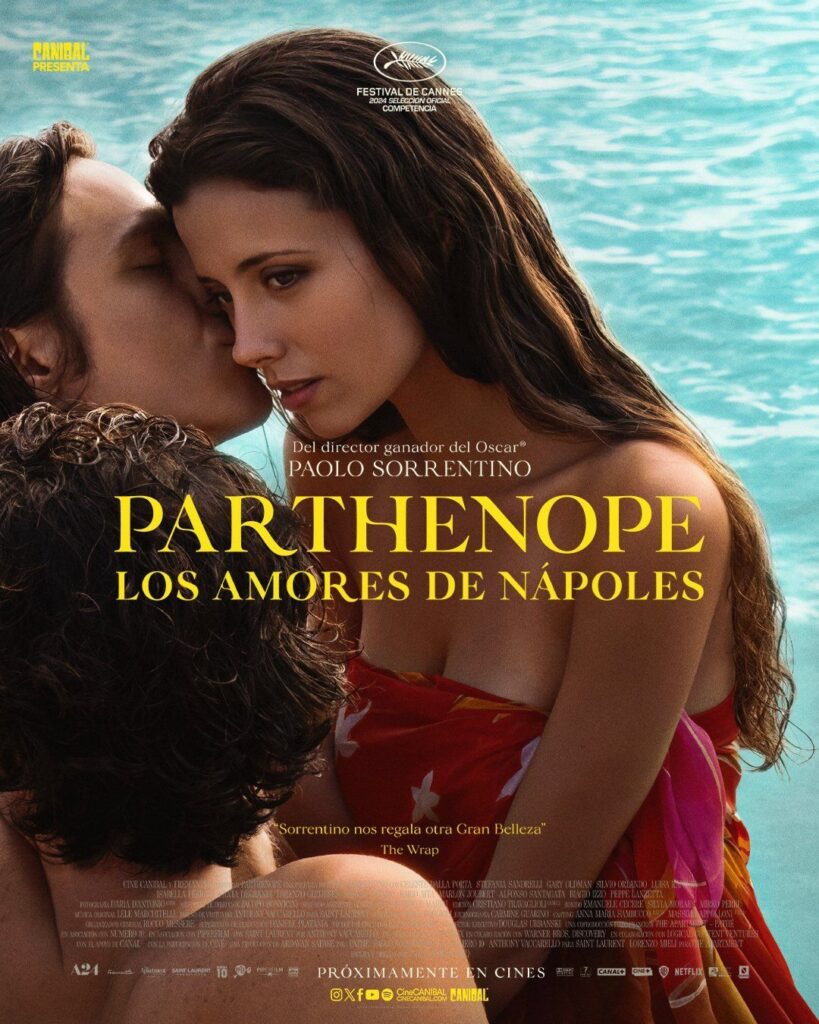Parthenope: Sorrentino’s Love Letter to Naples and the Woman Within

There are stories tied to cities.
And then there are cities that are stories.
For director Paolo Sorrentino, Parthenope is both — a name that belongs to a myth, a muse, and a memory. With his upcoming film, he doesn’t just capture a place. He resurrects a spirit.
Who is Parthenope?
In ancient Greek myth, Parthenope was a siren — a creature of impossible beauty and impossible sorrow. She lured sailors with song, but when Odysseus resisted, she flung herself into the sea. Her body washed ashore on the coast of what would become Naples, and her name was sewn into its soul.
For Sorrentino, this isn’t just folklore — it’s foundation. His Parthenope is a woman, yes. But she’s also a city, a memory, a myth come to life.
A Coming-of-Age Wrapped in Cinematic Poetry
Set in Naples, Parthenope tells the story of a girl growing up in a place that is both vibrant and melancholic. The film spans decades, seen through the eyes of its namesake — a modern-day Parthenope navigating love, loss, sensuality, and silence in a city that mirrors her every emotion.
Like The Great Beauty and The Hand of God, Sorrentino’s signature style is here: lavish visuals, slow-motion reveries, characters who speak in riddles or not at all. But in Parthenope, there’s a distinct feminine energy — less baroque, more intimate. The city isn’t just a backdrop. It’s a character. A lover. A ghost.
A City as a Woman, a Woman as a City
In the mythology of the film, Parthenope the girl carries the weight of her mythic namesake. She is Naples — beautiful, tragic, defiant. Through her, Sorrentino explores what it means to be seen, to be desired, and to be misunderstood. Her story isn’t linear. It’s tidal — ebbing and flowing between memory and imagination.
The result? A film that feels less like a narrative and more like a spell. A siren’s song in celluloid.
What to Expect
- Visual Poetry: Expect stunning shots of Naples — sun-bleached buildings, shadowy courtyards, endless ocean horizons.
- Emotional Depth: A raw portrayal of womanhood and identity shaped by place, culture, and myth.
- Sorrentino’s Signature: Surrealism, symbolism, and slow-burning introspection.
Final Thoughts: The Siren Sings Again
With Parthenope, Paolo Sorrentino is doing what only he can: telling a story that is deeply personal, gorgeously cinematic, and emotionally mythic. Whether you’re drawn by the mythology or the director’s vision, one thing’s certain — this film is not just about a woman. It’s about all women. It’s about a city. It’s about longing.
And above all, it’s about beauty — the kind that haunts you long after the credits roll.



